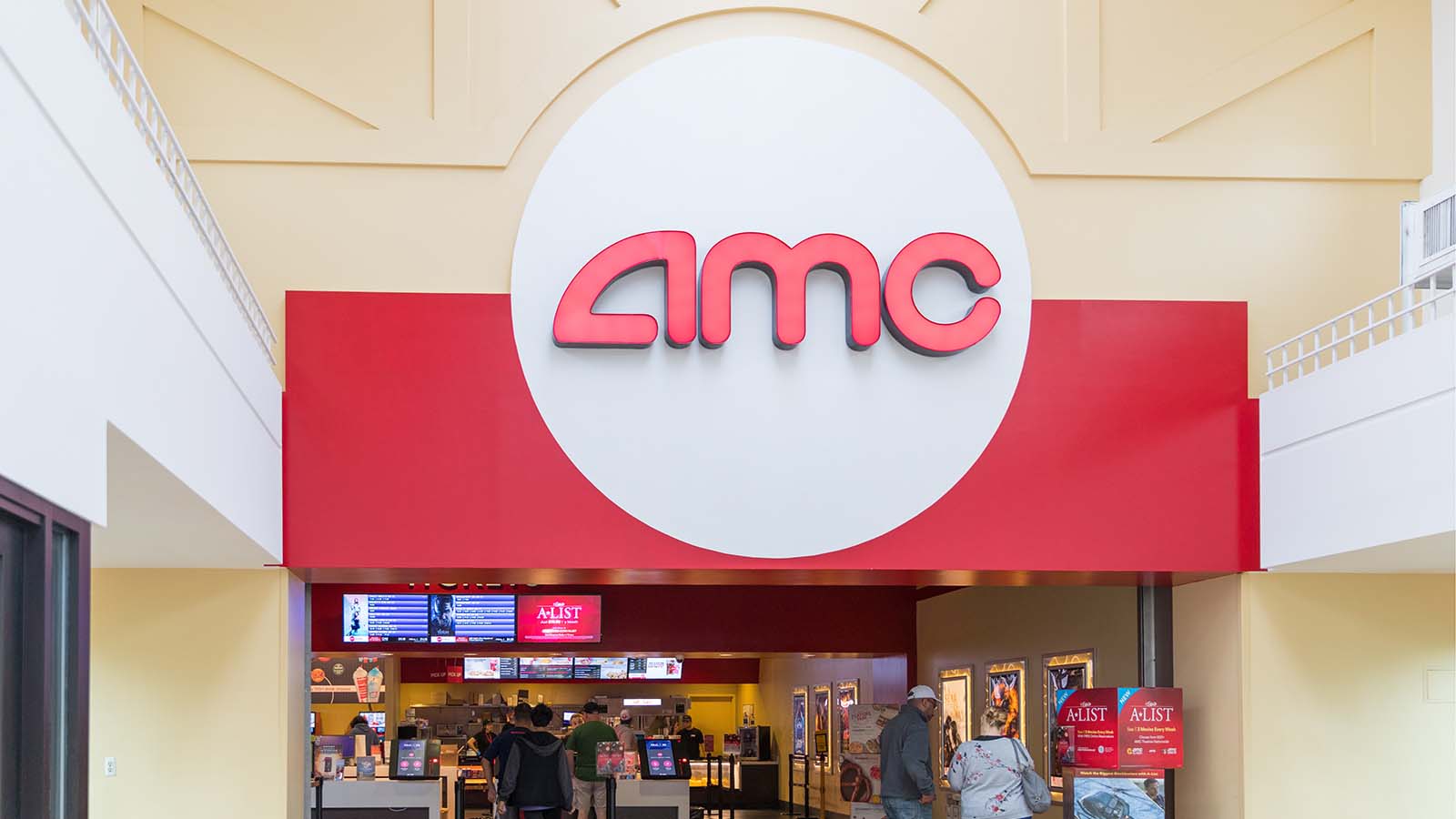AMC Entertainment (NYSE:AMC) has seen its picture go a little fuzzy lately. AMC stock was one of 2021’s unexpected winners as it rode an unprecedented wave of social media interest. However, the name has now declined 75% from its 52-week highs and is down by about 40% just over the past six weeks alone.

Part of the stock’s struggles can be blamed on broader, macro factors. A bunch of meme stocks have been collapsing lately due to the market’s correction. The prices of other assets that had been widely discussed on social media, such as the dog-themed cryptocurrencies, have deflated recently. So it’s not shocking that AMC stock is down so much.
However, it’s also clear that AMC’s poor fundamentals are dragging the stock down. AMC continues to post operating losses, and its box office attendance is well below pre-pandemic levels. Meanwhile, it’s unclear if and when the industry will even be able to return to the “old normal.” The rise of direct-to-streaming movie releases and shorter periods of exclusivity for movie theaters are a particularly big threat to AMC.
Given AMC’s uneven operating results, its balance sheet remains less-than-pristine. The company recently tapped the bond market to obtain additional funds. The move had some positive ramifications for AMC stock,, but it also highlighted many lingering risks faced by the company.
The Good: AMC Raises Needed Funds
The best part of AMC’s recent bond offering is that the company now has more working capital. This bond offering will allow AMC, for example, to refinance the high-interest notes that it took out during the height of the pandemic.
Specifically, back in 2020 AMC issued bonds at a 10.5% annual interest rate. That’s a brutal level for any company, but especially one in a relatively low-profit margin business such as movie theaters. Adding insult to injury, AMC also took on first-lien notes at a 15% interest rate during the crisis.
There was simply no way that AMC was going to generate much profit on funds borrowed at such a prohibitively high interest rate. So its new debt is a crucial means of eliminating that old, toxic debt.
The Bad: AMC Is Still Paying a High Interest Rate
AMC announced this week that it will be paying an annual interest rate of 7.5% on $950 million of newly-issued debt. The new debt will be due in 2029.
There is, however, a silver lining for AMC. Specifically, the company managed to sell more debt than originally planned, and the final interest rate on the notes was 7.5%, whereas it was originally targeting a deal at 8%. More demand at a better price is a sign that confidence in the company is rebounding.
Still, 7.5% is a high interest rate, so AMC will be paying around $70 million annually to service the debt. Moviegoers will have to buy a lot of popcorn to make the company that sort of dough.
The Ugly: AMC Could Have Been in Much Better Shape by Now
AMC’s continuing need to issue junk bonds is understandable . The company was already on weak footing even before Covid-19 hit, and the pandemic did a number on in-person, recreational businesses. So in theory. there’s nothing wrong with AMC issuing junk bonds
In practice, however, the deal just stinks. To understand why, take a look at the iShares iBoxx $ High Yield Corporate Bond ETF (NYSEARCA:HYG). The ETF is devoted to junk bonds and is yielding 4.2% right now. So investors who buy a basket of junk bonds are perfectly content to get barely more than 4% per year from their high-yield holdings. AMC, by contrast, is paying a yield of 7.5% to attract new investors.
And this problem could have been avoided. Back when AMC stock was trading for around $50 per share last year, CEO Adam Aron tried to issue more shares to the public. Selling just 20 million shares at that lofty price would have raised $1 billion, giving the company the ability to raise all the money it needed.
But the firm’s shareholders shot down Aron’s proposal. So instead of getting $1 billion from selling its grossly overpriced stock to the public, AMC had to issue painfully expensive debt to meet its capital needs. Shareholders, in their misguided pursuit of a short squeeze, left AMC’s balance sheet in much more dangerous waters than it needed to be.
The Verdict on AMC Stock
AMC’s shareholders are not going to receive the so-called “mother of all short squeezes ” that they desperately want. AMC stock already had quite the squeeze last year, going from the single digits to $70 at one point. The short sellers who were vulnerable to rallies by AMC already covered during that run.
For most of those who are bullish on the firm, the situation is starting to become clear: This stock isn’t going to deliver lifechanging wealth, nor will it “break” Wall Street. Traders are now abandoning AMC stock as this reality becomes obvious.
AMC is just a struggling movie theater business. It is making the right sorts of moves, such as refinancing its debt, to stay in business and help its employees and stakeholders. Management deserves kudos for that.
But that does not guarantee that AMC stock will be a winner. The online community has done great things for AMC. However, the company’s prospects going forward are decidedly murky.
On the date of publication, Ian Bezek did not have (either directly or indirectly) any positions in the securities mentioned in this article. The opinions expressed in this article are those of the writer, subject to the InvestorPlace.com Publishing Guidelines.
Ian Bezek has written more than 1,000 articles for InvestorPlace.com and Seeking Alpha. He also worked as a Junior Analyst for Kerrisdale Capital, a sizable New York City-based hedge fund. You can reach him on Twitter at @irbezek.
